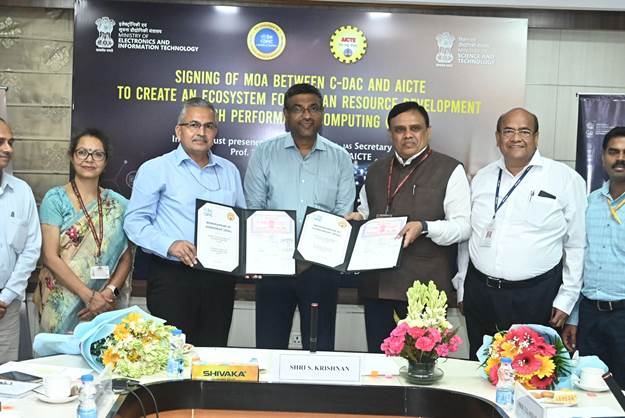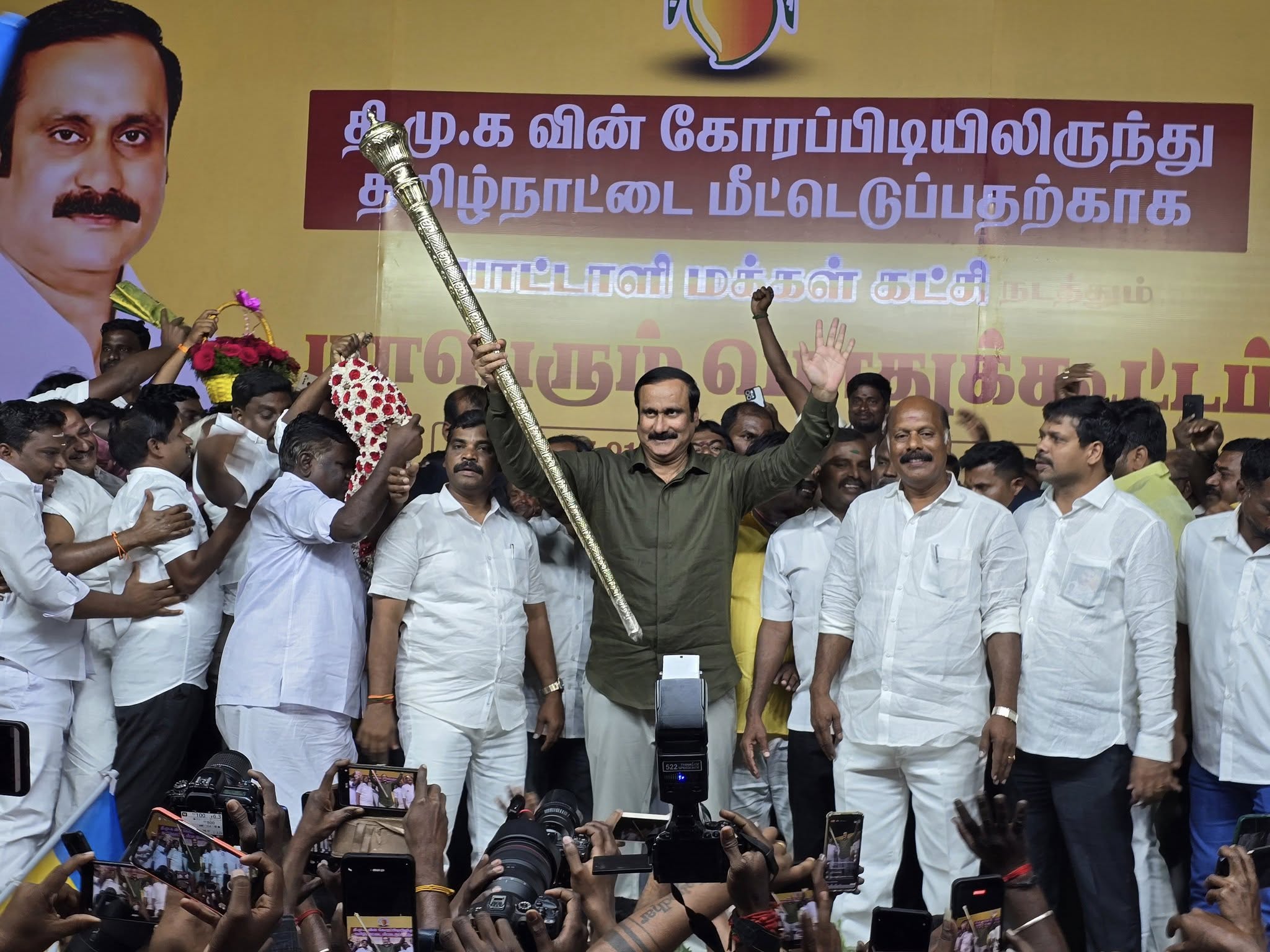
New Delhi: To create an ecosystem for human resource development in High-Performance Computing (HPC) and allied areas, the Centre for Development of Advanced Computing (C-DAC) signed a Memorandum of Agreement (MoA) with the All India Council for Technical Education (AICTE), today.
It may be mentioned that the development of HPC-aware manpower is one of the key deliverables of the National Supercomputing Mission (NSM), a flagship programme of the Government of India to build capacity and capability in HPC in the country, being executed by MeitY and DST. AICTE is mandated with planning and coordinated development of the technical education system across India and the promotion of qualitative improvements of such education. Thus, to meet the goals of NSM, C-DAC is partnering with AICTE for the proliferation of HPC education in AICTE-affiliated colleges across the country.
Some of the key activities to be taken up under this Memorandum of Association (MoA) are:
- Master Trainer Programmes: These training and refresher programmes will be conducted to train the Master Trainers in order to enhance their teaching skills in HPC and allied technologies. The master trainers will in turn train faculty members with the necessary knowledge to teach students in their colleges.
- Quality Improvement Programmes: These training programmes will be conducted to enhance the subject expertise in HPC and allied technologies of faculties from streams other than Computer Science.
- Courses on SWAYAM: Courses in HPC will be offered on the Ministry of Education’s SWAYAM platform which offers free online courses in various disciplines to the learners. This will help in reaching out to students across the country
- Formulation of Course Aligned with Industry Needs: HPC-related courses will be designed in such a way as to ensure that they are aligned with the current and emerging requirements of the HPC industry.
- Offering C-DAC developed HPC learning platforms: C-DAC will offer HPC learning platforms like PARAM Shavak, PARAM Vidya and other upcoming ones through AICTE to nominated institutes
As is evident from these objectives, the MoA between C-DAC and AICTE aims to drive sustainable human resource development in HPC and allied technologies, foster innovation, and meet the evolving needs of the industry and academia.
The MoA was signed by Professor TG Sitharam, Chairman AICTE and Colonel Asheet Nath (Retired), Executive Director, C-DAC Pune and Corporate Strategy, in the presence of S Krishnan, Secretary, Ministry of Electronics and Information Technology (MeitY), and other officials of MeitY & Department of Science and Technology (DST).
Krishnan said that the HPC-aware manpower development activity under NSM will now reach a wider audience in engineering colleges across the country. “This, in turn, will help in building HPC-related capability in the technical workforce, making them ready for the industry”, he added.
Professor TG Sitharam, Chairman AICTE, said “With the signing of this MoA between AICTE and C-DAC, we are taking a significant step towards creating a robust ecosystem for High Performance Computing (HPC) education in India.”. He also mentioned that this initiative aligns perfectly with the goals of the National Supercomputing Mission and the vision of NEP 2020, ensuring that our technical education system remains at the forefront of global advancements.
Advancing HPC through the National Supercomputing Mission
It is expected that 2500 faculty members from about 1000 engineering colleges across India will be trained through 50 Faculty Development Programmes (FDP). These resources will then be able to teach HPC-related topics to about 50,000 students as a part of their curriculum. To generate interest among aspirants from engineering colleges in the area of HPC, awareness programs introducing the nuances of HPC will be conducted in 1,000 colleges, eventually reaching out to 100,000 students. It is also proposed to install 50 numbers of PARAM Shavak – ‘Supercomputing Solution in a Box’ by C-DAC in AICTE-affiliated institutions, helping students gain hands-on experience using supercomputers.
– global bihari bureau





